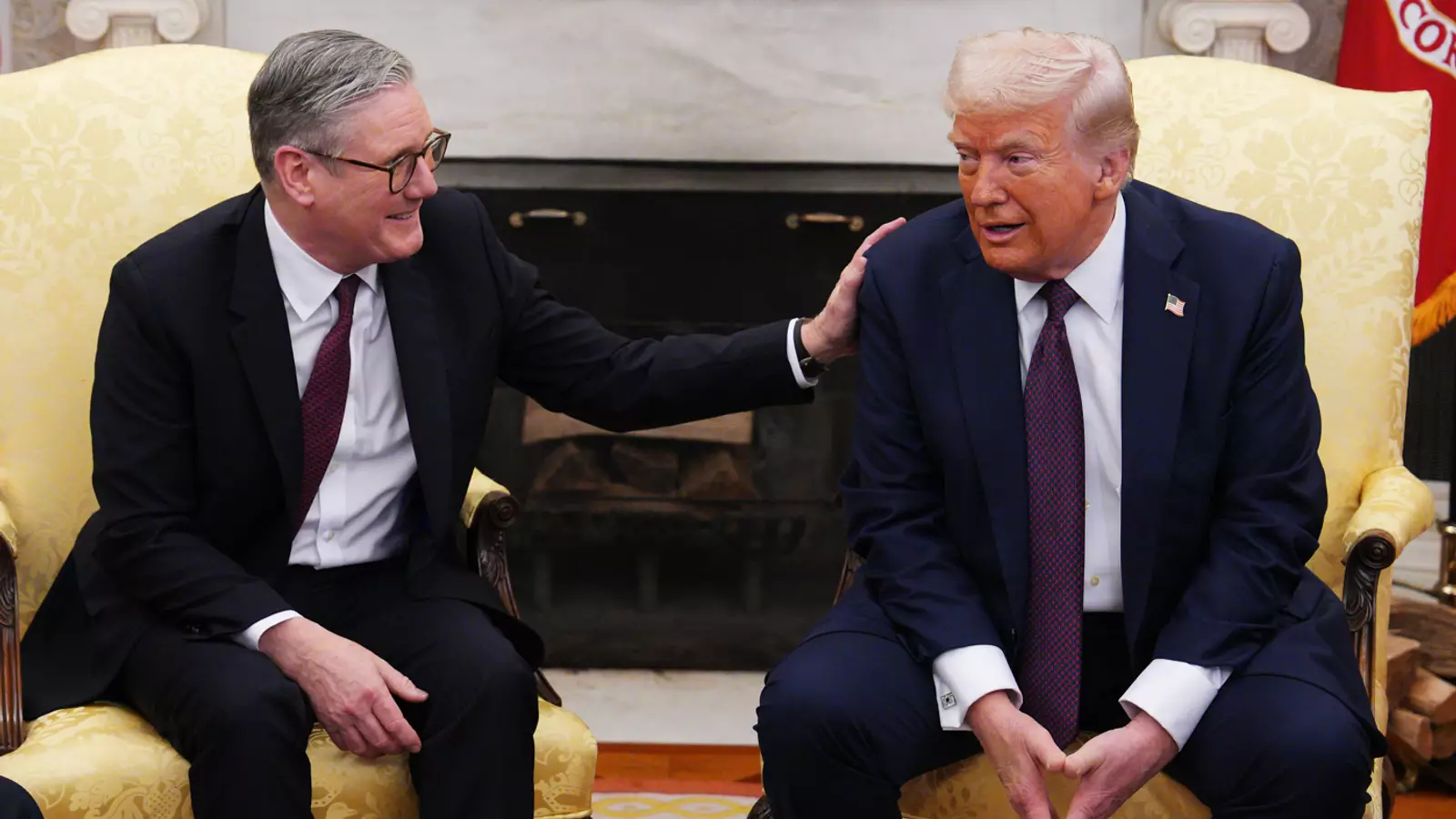The current climate surrounding US-UK trade relations has escalated into a high-stakes game that could redefine the economic landscape for both nations. With Donald Trump threatening to impose new tariffs on UK exports, the tension has forced Prime Minister Sir Keir Starmer into a defensive stance, emphasizing a need for a strategic rather than reactive approach. The impending tariffs are more than just numbers on paper; they embody a significant erosion of the economic bonds that have traditionally linked these two countries. Instead of responding rashly to the threats, Starmer insists on maintaining a composed demeanor as discussions about a meaningful economic deal are pursued. However, one must question the practicality of this calm approach amidst what seems to be a brewing trade war.
Navigating the Economic Battlefield
Starmer’s acknowledgment of the “rapid progress” in trade discussions evokes cautiously optimistic sentiments. Still, claiming that measured responses are vital appears somewhat naive in the face of aggressive tariff policies. The Prime Minister’s assertive stance, insisting that “all options have to remain on the table,” reflects the dire situation the UK finds itself in. The rhetoric surrounding “liberation day,” as dubbed by Trump, undoubtedly aims to rally American supporters by painting tariffs as a patriotic measure. But can the same narrative hold true for the UK, which risks significant economic repercussions as the political winds shift?
The foreboding predictions from the Office for Budget Responsibility (OBR) lend weight to the concerns over potential 1% contraction in the British economy due to the tariffs. This forecast raises legitimate doubts about the approach taken by the government. While negotiating trade deals can take months or even years, the question arises: how can the Starmer government reassure its citizens that they are securing the best possible outcomes under such duress? Clear communication and decisive action are paramount in navigating this treacherous terrain.
The Dilemma of Retaliation
The notion of retaliatory tariffs introduced by Trade Secretary Jonathan Reynolds highlights the precarious balancing act that the UK must perform. On one hand, the necessity of reciprocation underscores the ramifications of unchecked aggression in international trade. Yet, on the other, entering into a tit-for-tat cycle could unleash a detrimental cascade, harming consumers and businesses alike on both sides of the Atlantic. The assertion that “reasonable” retaliatory tariffs are an option may be politically appealing but lacks clarity and foresight.
Adopting a calm-headed approach in hopes of striking a deal is a commendable stance; however, the effectiveness of such a strategy is debatable. Starmer’s government finds itself trapped between fervent nationalism espoused by Trump and the stark realities of economic interdependence. The pressure to act decisively while simultaneously avoiding the escalation of tensions is akin to walking a tightrope, and there are no guarantees that the careful maneuvering will yield positive results.
Global Markets: A Reflective Reality
As the anticipation of new tariffs looms large, global markets reflect panic and uncertainty. With the FTSE 100 trading lower and Wall Street experiencing volatile swings, investors are clearly uneasy about the ramifications of Trump’s breathless tariff declarations. The market’s tepid response signals a broader apprehension regarding the potential fallout from such unilateral economic decisions. Shifting economic power dynamics pose a formidable challenge to the UK, which has only recently been finding its footing post-Brexit.
In the midst of this turbulence, the notion of working towards a healthy trade agreement appears to be overshadowed by the specter of tariffs. Starmer’s government must adopt a proactive attitude in negotiations rather than remain adversarial out of fear. This is not just about the immediacy of tariffs; it is about how the UK positions itself on the global stage in an increasingly fractious international trade environment.
In this precarious period, full steam ahead in negotiations is essential. Yet, one cannot ignore the reality of dealing with a mercurial administration where unpredictability reigns supreme. The prospects are daunting, but this is also a moment for the UK to redefine its strengths, explore alternative trading partners, and innovate—as these could ultimately pave the way for a resilient economic future.


Leave a Reply